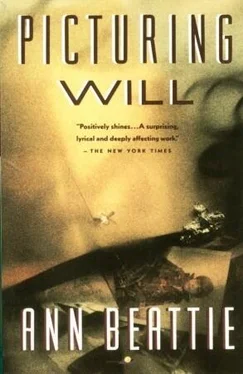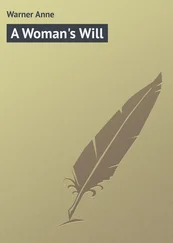If all the dinosaurs had gone into caves. If they came out again someday, the way bats flew at dusk.
His mother had told him that the man who would be king of England did not come right out and ask the woman he wanted to marry to marry him. The king said “If I asked …” so he could find out in advance what she would say.
If his mother asked.
Corky reached under his pillow and took out the Bugs Bunny with a flexible orange body. Bugs held an orange carrot with a spray of green plastic at the top. His big front teeth were white. Bugs probably cleaned according to the advice of the Tooth Lady, flossing every night.
Corky asked if she could pack Bugs. If she left Bugs under the pillow, she would forget to pack him, she was sure. He nodded yes. But no: He did not want Bugs dropped in the zippered case with G.I. Joe. G.I. Joe would be insulted, the way any soldier would be insulted if asked to share quarters with a rabbit. If the rabbit was a pet, that was one thing — but Bugs was the same size as G.I. Joe, only skinnier. He would have to go in the suitcase. Tucked in the pocket of the white shirt he had worn on this trip was fine.
Corky held the bow tie over her top lip, and Will laughed. A lawnmower started outside. That meant that his father and Eddie had triumphed. The people next door always played the same record. If he played a record more than once, his mother objected. When you grew up, you could play any record you wanted, any time you wanted. The lawnmower drowned it out, though. Grass had to be cut. This was a fact. A Virginia and a Florida fact. In New York, there was just the snapping sound of the hedge clippers, when the sister of the man who lived downstairs came to cut branches. You also heard firecrackers and gunshots in New York. In the video arcade, at the mall where Corky worked, he had heard New York sounds. He had led her inside to investigate. Sounds of exploding asteroids and speeding cars that collided. Helicopters that failed to clear the tops of buildings and exploded. Bells and sirens. A spray of dots fired into descending targets that fell in no predictable pattern.
Wayne sat on Corinne and Eddie’s front step, sipping a Schlitz. He raised the can as if toasting Eddie, who shook his head from side to side, pushing the mower. If Wayne hadn’t been able to get the mower going, Eddie’s ass would have been in the doghouse; Corinne had begged him to charge a new mower. She had just known that when people were invited over the mower would quit on them again, and the shop wouldn’t get to it for a week.
Corinne was in a good mood now, standing in the doorway, looking at Eddie as admiringly as if he were driving the Indianapolis 500, the baby resting against her chest. Wayne turned and said something to her, and she smiled. Wayne was probably not giving her the word that Eddie was going back on the softball team.
That was how they all were: Eddie, confident that the mower would keep going just by the sound of it, began to mow the grass in earnest; Corinne stood outside the screen door; Patsy Cline sang; Wayne tilted the can of Schlitz higher, hurrying to finish, because he never found it easy to make conversation with Corinne.
Corinne was the first to notice the police car. The car was moving slowly, with the windows down, and you could hear the two-way radio: fuzzy words and crackling. It passed by and stopped at the curb in front of Wayne’s house. She patted the baby’s back, as if to soothe it, and watched as both cops got out of the car. One carried something thin and rectangular. Both looked at her, standing in the doorway. Their faces were expressionless. She did not think that they were collecting for the Fireman’s Ball. But of course policemen would not be collecting for the Fireman’s Ball. Firemen did that. Police collected for …
Fear gathered in the back of Wayne’s throat. It was there like food that had gone down the wrong way.
Eddie looked at Wayne, and at the policemen walking up Wayne’s walkway. He had helped Wayne put the flagstone down the summer before. Wayne had wanted to leave too much room between stones. Weeds would have grown. Eddie was glad that he had taken his advice about placing them closer together. He stopped mowing the lawn.
Corky opened the door. Wayne could have headed them off, but it was all so sudden. And you couldn’t head off cops. The closest thing Wayne knew to that was a guy he used to work with, years ago, who kept a Masonic ring in his glove compartment and fished it out whenever a cop stopped him for a traffic violation.
Corky pushed the door open and turned and looked at Wayne, sitting on the step, holding a Schlitz. It was the last drink he would have before his life changed. She was looking at him across the distance between houses and he looked back as if she were a lighthouse and he were a boat, receding. She suddenly seemed that tall, as he looked up at her. There were fewer and fewer lighthouses. Things were done electronically. He had thought about getting a boat. Just a small boat, to keep at the dock. Even a rowboat would have been fine. Tie it with a chain. Down at the dock, where the fishermen fished.
He nodded that he was Wayne, when the cop asked.
The other cop looked like somebody who’d steal your girlfriend. Handsome, and with no compunctions. It was hard to imagine which role he’d have if the two of them played Good Cop/Bad Cop, because if he played the Good Cop, men would still resent him because of his good looks and his fuck-you expression; if he played the Bad Cop, he’d be poorly suited to the role. Bad people didn’t look like that. They didn’t look like they should be in the movies. If this was a movie, suspense would be mounting. Everyone would have his fingers in the popcorn bag. Wayne put down the can of beer.
There was a photograph. A small photograph on a clipboard, of Kate.
He nodded when asked if he knew her. He was holding the clipboard like somebody giving a speech, looking down to refresh his memory. Now Corky was standing in front of him. What would this speech be about? There was not one thing on the clipboard but a picture of Kate, smiling.
The other cop took a pill bottle from his pocket. Wayne frowned. He was standing now. When he stood, both cops stepped back. Eddie had come up alongside one of the cops. The lawnmower was in the middle of the yard. The grass behind it was mowed, and the grass in front of it was tall. This was a bad situation. What was the cop showing him?
A pill bottle, with Corky’s name on it. He didn’t know she’d been sick. It was her name, and her address — were they here to ask her about that? Not with a picture of Kate, they weren’t. Kate’s smile seemed utterly inappropriate.
The handsome cop asked Corky if Kate’s picture was familiar.
She looked at Wayne. The woman was Wayne’s lover. He had picked a woman who looked nothing like her. She shook her head no.
Wayne asked if there was some problem about the pill bottle.
Where it was found, they said. In a rented car. It had rolled under the seat. There was also quite a bit of cocaine in the car. Did he know anything about that cocaine?
Cocaine?
Cocaine. He did know the woman in the picture?
Kate.
The cop with the clipboard nodded. The other cop could have been posing for photographs: square-shouldered, noble chin. Tall and trim in his uniform.
Corinne was praying that Eddie was not involved in this. She always knew Wayne was trouble. A sulky person. One of those men who’re buddy-buddy with the other guys and look at a guy’s wife like they’re peering into a bread basket: one more piece of bread, cut on the angle. No surprises. Wayne was trouble. Standing there listening was like watching an accident: It wasn’t a nice thing to do. But it was impossible to move on. Wayne and Corky’s future was transpiring in front of Corinne’s eyes.
Читать дальше












